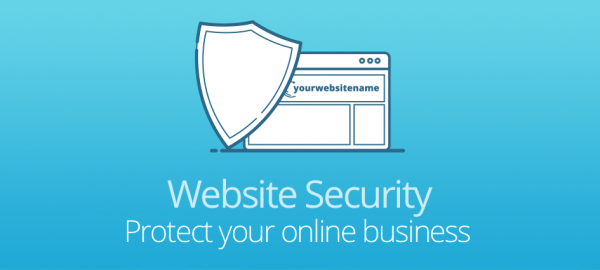Is there anything more worrying than the thought of seeing all your work completely wiped out by a vicious hacker?
You’ve worked hard on your website, so it’s important to take the time to protect it. You may question why a hacker would want to target your business, but it’s more common now than ever before. Most security breaches are not to steal your data or to break your website but attempts to use your server as a way in for spam or to upload files of illegal nature.
Hacking is most commonly performed by scripts that scour the internet to fish out known website security issues in software.
Did you know?
- There is a hacker attack every 39 seconds *
- 43% of cyber-attacks target small businesses *
- It is estimated that 54% of companies have experience at least 1 cyber-attack within the last 12 months. *
Here’s why we recommend protecting your website
If a hacker gains access to your website or server, there are multiple things they could do, including:
- Infect your website with malware causing serious damage
- Steal credit card details, passwords and personal data to use for identity fraud
- Upload illegal content on your website
- Initiate server attacks on other websites causing a whole heap of issues
What steps should I take to protect my website?
Install security plug-ins
Increase your websites security with plug-ins that prevent hacking attempts, such as Sitelock.
Sitelock closes security gaps by monitoring your site daily, to detect any malware, identifies vulnerabilities, virus scanning and more. Sitelock automatically fixes any threats, prevents future attacks, increases website speed and is PCI compliant.
Keep your software up to date
It may seem obvious but making sure your software is up to date plays an important part in keeping your website safe. When website security holes are found in software, hackers are quick to use this as a way of causing harm to your website. Software updates usually include crucial security fixes, so without installing the latest version, you’ll increase the chances of a security breach.
Install an SSL Certificate
An SSL certificate encrypts sensitive data, such as credit card details and login credentials. This stops a hacker gaining access to such important information. Plus, SSL certificates are not just good for security… Google have made it clear that HTTPS is factored into ranking!
Check your passwords
Everyone knows they should use complex and strong passwords and it’s crucial to use these, to avoid hackers guessing your password and gaining access to your website files etc. We recommend making your password include:
- Minimum 8 characters in length
- At least 1 uppercase character
- 1 number minimum
- At least 1 special character
It only takes one bad experience to destroy your reputation and lose your customers confidence and trust, so don’t take the risk.
Make sure that you’re paying attention to any suspicious or unusual activity on your website. Adopting the steps above can help improve the security of your website, to avoid any damage.
* Source : https://www.cybintsolutions.com/cyber-security-facts-stats/
